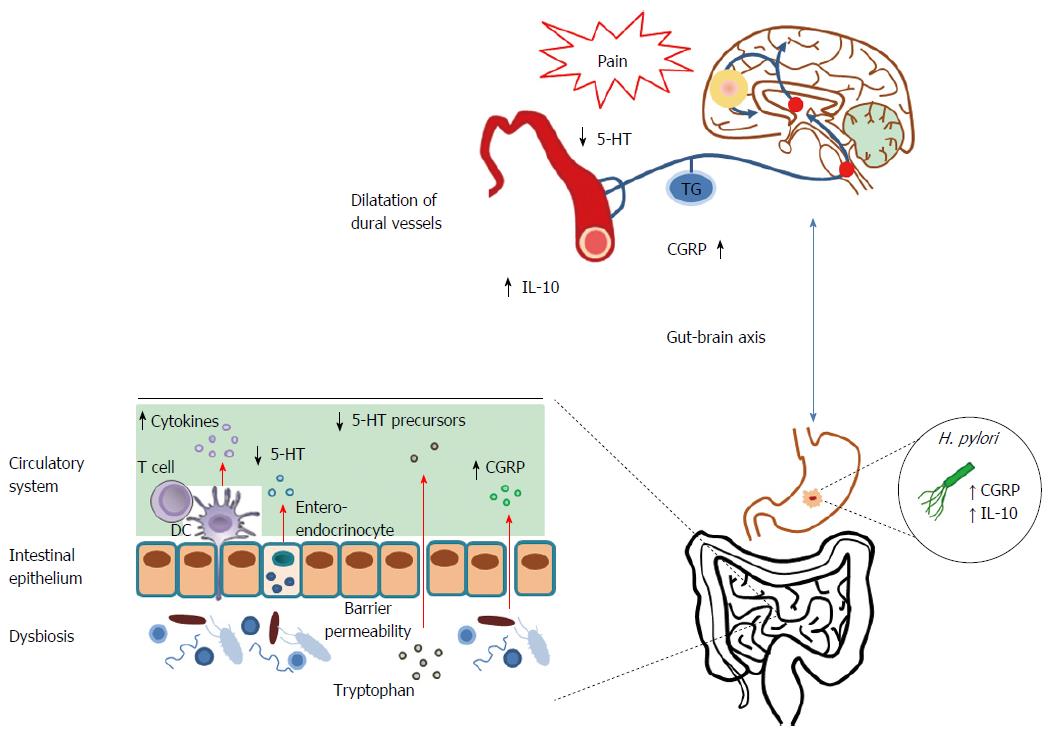Copyright
©The Author(s) 2016.
World J Gastroenterol. Sep 28, 2016; 22(36): 8149-8160
Published online Sep 28, 2016. doi: 10.3748/wjg.v22.i36.8149
Published online Sep 28, 2016. doi: 10.3748/wjg.v22.i36.8149
Figure 1 Role of the gut microbiota in migraine.
Immunological, endocrine, metabolic and neural signals are important pathways by which the gut microbiota influences brain functions. Altered gut microbiota (dysbiosis) affects the normal assimilation of nutrients (tryptophan metabolism), barrier permeability, mucosal immune and enteroendocrine cells, affecting in turn some communication pathways; this results in the production of gut peptides (↑ CGPR) by certain microbes, abnormal release of cytokines (↑ IL-10) and hormones (↓ 5-HT). H. pylori also plays a role in the release of cytokines (IL-10) and CGRP. The increased cytokines and CGRP levels, as well as the decreased 5-HT levels, modulate the vasodilatory response of dural vessels, triggering and perpetuating migraine attacks. DC: Dendritic cell; 5-HT: 5-hydroxytryptamine; IL: Interleukin; CGRP: Calcitonin gene-related peptide; TG: Trigeminal ganglion; H. pylori: Helicobacter pylori.
- Citation: Cámara-Lemarroy CR, Rodriguez-Gutierrez R, Monreal-Robles R, Marfil-Rivera A. Gastrointestinal disorders associated with migraine: A comprehensive review. World J Gastroenterol 2016; 22(36): 8149-8160
- URL: https://www.wjgnet.com/1007-9327/full/v22/i36/8149.htm
- DOI: https://dx.doi.org/10.3748/wjg.v22.i36.8149









